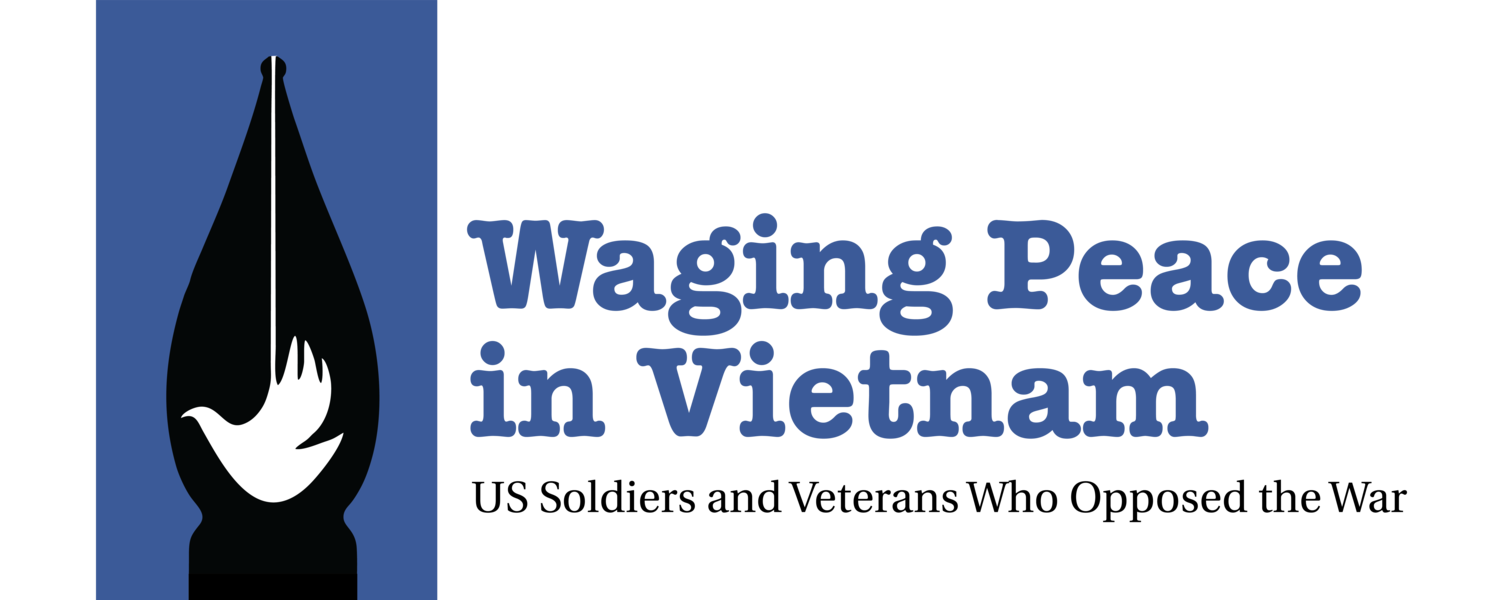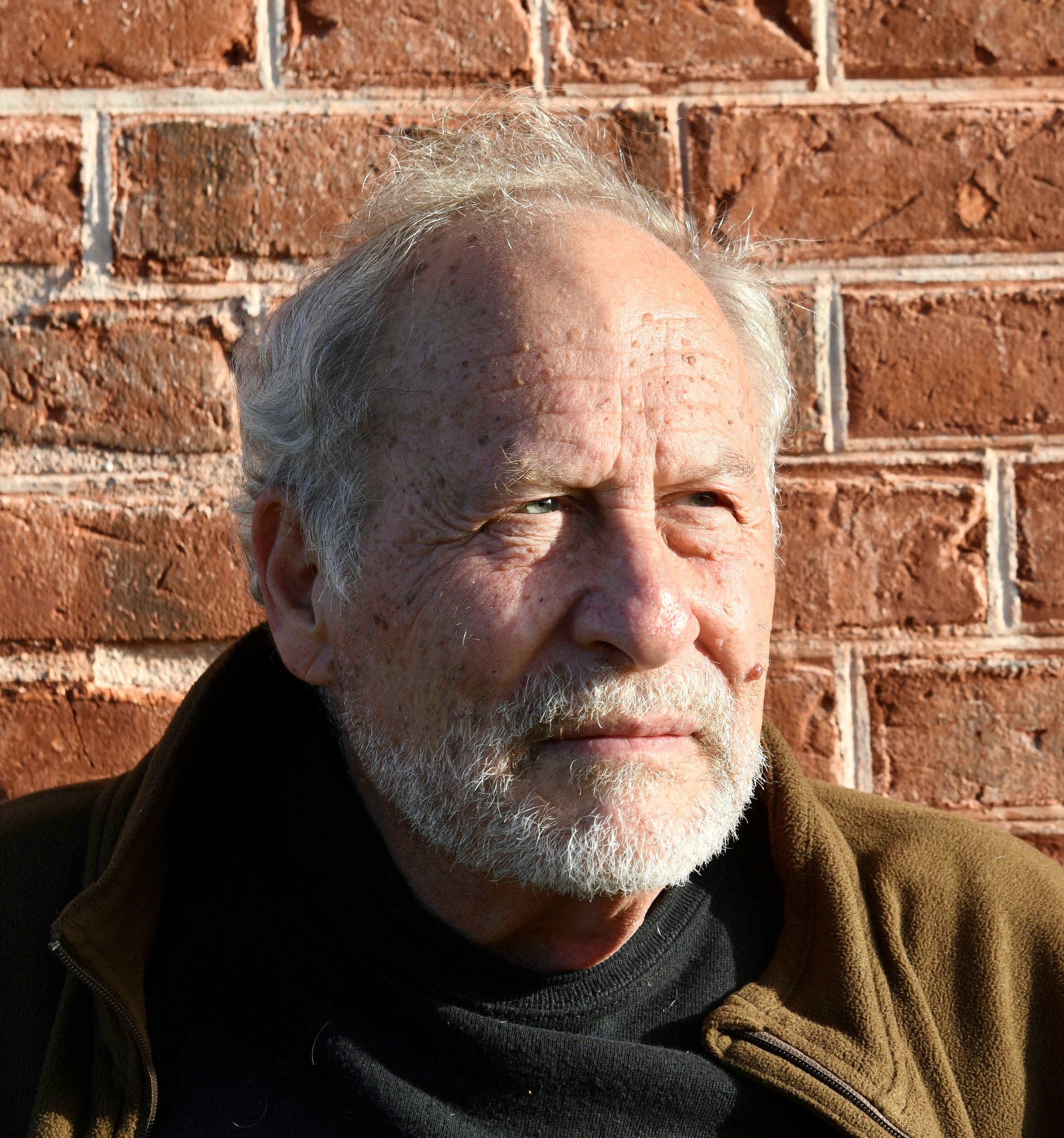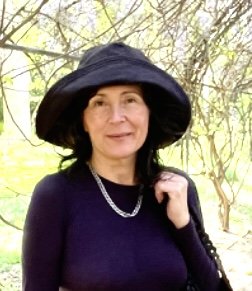As the Waging Peace in Vietnam exhibit visits Colorado University- Boulder, accomplished poets will gather for reading poems of war, memory, and reconciliation. Their works help us to understand the war in Vietnam and its profound consequences.
Read more about each of the featured poets below:
Jan Barry
Jan Barry is a poet, author and journalist. As a U.S. Army veteran of the Vietnam War, Barry coordinates Warrior Writers workshops and programs for veterans and family members in New Jersey.
Born Jan Barry Crumb in 1943 in Ithaca, NY, he grew up in a rural village in the Finger Lakes region. After graduating from Interlaken Central High School, he attended the New York State College of Forestry at Syracuse University, but dropped out to join the Army and see the world.
Appointed to the U.S. Military Academy after a war tour in Vietnam, he resigned from West Point to become a writer and peace activist. A co-founder of Vietnam Veterans Against the War, his poems and essays on the war appeared in diverse publications, from the Chicago Tribune and New York Times to A People and A Nation: A History of the United States. His poetry first appeared in Winning Hearts and Minds: War Poems by Vietnam Veterans, published by 1st Casualty Press, founded by Jan Barry, Larry Rottmann and Basil T. Paquet. With W.D. Ehrhart, he compiled a sequel, Demilitarized Zones: Veterans After Vietnam. Marshaling writers and artists confronting the threat of nuclear war, he also edited Peace Is Our Profession: Poems and Passages of War Protest. In August 2019, he was named poet laureate of Veterans For Peace.
Barry is the author of A Citizen's Guide to Grassroots Campaigns, Earth Songs: New & Selected Poems, Life After War & Other Poems, and commentaries posted on Internet web sites. On Memorial Day 2012, he was presented a New Jersey Joint Legislative Resolution for his work with the Combat Paper NJ Project, which was featured on PBS Newshour and other news programs.
Teresa Mei Chuc
Teresa Mei Chuc was born in Saigon, Vietnam. Shortly after the Vietnam War, Chuc, her mother, and her brother were granted political asylum and settled in Pasadena, California. Her father remained in a Vietnamese “reeducation camp” for nine years. Chuc earned a BA in philosophy and credentials in primary and secondary education as well as an MFA in creative writing from Goddard College. She is the author of three collections of poetry: Red Thread (2012), Keeper of the Winds (2014), and Invisible Light (2018). Her many chapbooks include Truth is Black Rubber (2010), Year of the Hare (2013), and How One Loses Notes and Sounds (2016). Chuc’s poetry engages memory, trauma, healing, and her family’s particular history of the Vietnam War. In an interview with Rattle magazine, Chuc said of the poems in Red Thread, “I felt an almost urgent need to document my family’s experiences for them and for my children. … I felt that there was this big story about war and humanity and my family was part of it, not by choice but by chance.”
Chuc is a fellow of and teacher consultant for the Los Angeles Writing Project and teaches writing and literature at a public high school. She is founder and editor-in-chief of Shabda Press and a member of the Coast to Coast Poetry Press Collective.
Wayne Karlin
Wayne Karlin is an author, editor, and teacher. After service in the United States Marine Corps in the Vietnam War, Karlin co-edited the first collection of Vietnam veterans’ fiction from the war, Free Fire Zone: Short Stories by Vietnam Veterans, in 1973, and in 1995 was the co-editor, with Lê Minh Khuê and Truong Vu of the first collection of fiction by Vietnamese and American authors who had been on different sides in the war: The Other Side of Heaven: Postwar Fiction by Vietnamese and American Writers. He became the pro bono American editor of the Curbstone Press Voices from Vietnam series and introduced, adapted and edited novels and short story collections by contemporary Vietnamese authors, as well as a second anthology, Love After War, Contemporary Fiction from Viet Nam, co-edited with Hồ Anh Thái (2005); the anthology was simultaneously published in Vietnam as Tình yêu sau chiến tranh (Hoi Nha Van-Writers; Association Publishing House, 2004
His books include three works of non-fiction: Wandering Souls: Journeys With the Dead and the Living in Viet Nam (Nation Books, 2009) which was also published in translation in Vietnam as Những linh hồn phiêu dạt ((Nha Xuat Ban Thong Tan, 2013); War Movies (Curbstone, 2005), Rumors and Stones (Curbstone, 1996), eight novels: A Wolf by the Ears (University of Massachusetts Press, 2020), Marble Mountain (Curbstone, 2007), The Wished-for Country (Curbstone, 2002), Prisoners (Curbstone, 1998), US (Henry Holt, 1993), The Extras (Henry Holt, 1989); Lost Armies (Henry Holt, 1988), and Crossover (Harcourt Brace, 1984), (also published in England (Methuen, 1985), and in translation in Sweden, Finland, Italy and Holland), and a collection of short stories, Memorial Days: Viet Nam Stories, 1973-2022 (Texas Tech University Press, Peace and Conflict Series, 2023).
Radio: In 2006 and 2009 Karlin was a consulting producer and writer for Shared Weight, a series of hour-long radio programs involving interviews with American and Vietnamese writers, film makers and artists in the U.S. and in Vietnam, and journeys of reconciliation, produced by the Center for Emerging Media for National Public Radio. It was broadcast on over 40 NPR stations and is still in circulation.
Film: Karlin was one of the script writers, a technical consultant, and acted in the feature film Song of the Stork, a Vietnamese-Singaporean co-production (Megamedia, PTE, BHD Productions, 2002) which has won the Best Feature Film Award at the Milano Film Festival in 2002 and has been shown in other festivals in Belgium, Canada, the U.S. and Thailand.
Yusef Komunyakaa
Yusef Komunyakaa was born on April 29, 1947, in Bogalusa, Louisiana, where he was raised during the beginning of the Civil Rights Movement. He served in the United States Army from 1969 to 1970 as a correspondent, then as managing editor of the Southern Cross during the Vietnam war, which earned him a Bronze Star.
Komunyakaa began writing poetry in 1973 and received his bachelor’s degree from the University of Colorado Springs in 1975. His first book of poems, Dedications & Other Darkhorses (R. M. C. A. J. Books), was published in 1977, followed by Lost in the Bonewheel Factory (Lynx House Press) in 1979. During this time, he earned his MA and MFA in creative writing from Colorado State University and the University of California, Irvine, respectively.
Komunyakaa first received wide recognition following the 1984 publication of Copacetic (Wesleyan University Press), a collection of poems built from colloquial speech which demonstrated his incorporation of jazz influences. He followed the book with two others: I Apologize for the Eyes in My Head (Wesleyan University Press, 1986), winner of the San Francisco Poetry Center Award; and Dien Cai Dau (Wesleyan University Press, 1988), which won The Dark Room Poetry Prize and has been cited by poets, such as William Matthews and Robert Hass, as being among the best writing on the war in Vietnam.
Since then, Komunyakaa has published several books of poems, including The Emperor of Water Clocks (Farrar, Straus and Giroux, 2015); Thieves of Paradise (Wesleyan University Press, 1998), which was a finalist for the National Book Critics Circle Award; Neon Vernacular: New & Selected Poems 1977–1989 (Wesleyan University Press, 1994), for which he received the Pulitzer Prize and the Kingsley Tufts Poetry Award; and Magic City (Wesleyan University Press, 1992).
Komunyakaa’s prose is collected in Blues Notes: Essays, Interviews & Commentaries (University of Michigan Press, 2000). He also coedited The Jazz Poetry Anthology (with J. A. Sascha Feinstein, 1991), co-translated The Insomnia of Fire by Nguyen Quang Thieu (with Martha Collins, 1995), and served as guest editor for The Best of American Poetry 2003. He has also written dramatic works, including Gilgamesh: A Verse Play (Wesleyan University Press, 2006), and Slip Knot, a libretto in collaboration with Composer T. J. Anderson, commissioned by Northwestern University.
About Komunyakaa’s poetry, the poet Toi Derricotte wrote for the Kenyon Review, “He takes on the most complex moral issues, the most harrowing ugly subjects of our American life. His voice, whether it embodies the specific experiences of a black man, a soldier in Vietnam, or a child in Bogalusa, Louisiana, is universal. It shows us in ever deeper ways what it is to be human.”
Komunyakaa is the recipient of the 2011 Wallace Stevens Award. His other honors include the Ruth Lilly Poetry Prize, The Griffin Poetry Prize Lifetime Recognition Award, the William Faulkner Prize from the Université de Rennes, the Thomas Forcade Award, the Hanes Poetry Prize, fellowships from the Fine Arts Work Center in Provincetown, the Louisiana Arts Council, and the National Endowment for the Arts.
Komunyakaa was elected a Chancellor of the Academy of American Poets in 1999. He has taught at University of New Orleans, Indiana University, as a professor in the Council of Humanities and in the creative writing program at Princeton University. He lives in New York City where he is currently distinguished senior poet in New York University’s graduate creative writing program.
Hoa Nguyễn
Poet Hoa Nguyễn was born in the Mekong Delta region of Vietnam and raised in the Washington, D.C., area. She is the author of several books, including A Thousand Times You Lose Your Treasure (Wave Books, 2021), winner of the Canada Book Award and a finalist for the Kingsley Tufts Poetry Award, the National Book Award, and the Governor General’s Literary Award; Violet Energy Ingots (Wave Books, 2016); Tells of the Crackling (Ugly Duckling Presse, 2015); Red Juice: Poems 1998–2008 (Wave Books, 2014); and As Long As Trees Last (Wave Books, 2012). With the poet Dale Smith, Nguyen founded Skanky Possum, a literary journal and small press.
The recipient of a 2019 Pushcart Prize, Nguyen has garnered attention from such outlets as PBS NewsHour, Granta, the Walrus, the New York Times, CBC Books, and Poetry magazine, among others. She was a finalist for the 2020 Neustadt International Prize for Literature.
Nguyen is a member of She Who Has No Master(s), a program of the Diasporic Vietnamese Artists Network (DVAN). In 2021, she became a founding mentor in SWHNM’s writing mentorship program designed for and led by Vietnamese and Southeast Asian diasporic women and nonbinary writers.
Nguyen is a 2022–2023 visiting practitioner at Toronto Metropolitan University and a mentor for writers as part of the graduate programs at Guelph University and the University of Toronto. Since 2015, she has taught in the Bard College MFA program in the Milton Avery Graduate School of the Arts, where she was named cochair of the discipline of writing in 2020. She has lived in Toronto, Canada, since 2011.
Kimberly Nguyễn
Kimberly Nguyễn is a Vietnamese-American diaspora poet originally from Omaha, Nebraska but now living in New York City. and the author of ghosts in the stalks and Here I Am Burn Me which won the Jack McCarty Book Prize. Her work can be found in diaCRITICS, Hobart, Muzzle Magazine, and The Minnesota Review. She was a recipient of a Beatrice Daw Brown Prize, and she was a finalist for Frontier Poetry’s 2021 OPEN and New Poets Awards and Palette Poetry’s 2021 Previously Published Poem Prize. She was a 2021 Emerging Voices Fellow at PEN America and was a 2022-2023 Poetry Coalition Fellow.
Doug Rawlings
Doug Rawlings was drafted into the U.S. Army in 1968 and was in Vietnam from July 1969 to August 1970. He is a cofounder of Veterans For Peace. Rawlings’ latest collection of poems, CAU TRE/BAMBOO BRIDGE, written in collaboration with Teresa Mae Chuc, weaves together a Vietnamese refugee's reflections with his own. His other books include Orion Rising, In the Shadow of the Annamese Mountains, A Bakers Dozen: Fiddleheads and Other Poems for Children. and La Fille Dans La Photo et Autre Poems translated by Daniel Gerson. He is also the editor of LETTERS TO THE WALL, three collections of 500 letters written to the Viet Nam Memorial.
"I was first introduced to the idea of political poetry on October 18, 1970, about midnight, in an all-night Harvard Square corner bookstore. A few months before that encounter I had returned from the war in Viet Nam. To say that I was confused and angry is an understatement. I was also somewhat lost. Then on that fateful night I found this wonderful collection of poems by Denise Levertov that captured her journey to North Viet Nam as a peace activist. This was the first serious “discussion” I had read from and about “my” war. And true to what Robert Bly considers effective political poetry, Levertov used the personal to open up the universal. I was captured, and unlike my response to military “service,” I did not want to escape. Instead, I sought out more of her work and other poets and, eventually, began to write my own poems."
Bruce Weigl
Soon after turning eighteen, Bruce Weigl enlisted in the Army and served in Vietnam for one year, beginning in December 1967. He was awarded the Bronze Star and returned to his hometown of Lorain, Ohio. As Weigl states in his best-selling prose memoir, The Circle of Hanh (2000), “The paradox of my life as a writer is that the war ruined my life and in return gave me my voice.”
Influenced by James Wright, Weigl’s free-verse poetry seeks, in his words, “the beauty of a thing said straight.” Weigl’s early work engages directly with the horror of his experience of war, while more recent work explores themes of family and childhood. His Buddhist practice influences his compassionate and unflinching attention to what he terms “ordinary people in extraordinary situations.”
Weigl is the author of more than a dozen books of poetry, including On the Shores of Welcome Home (2019), winner of the Isabella Gardner Poetry Award; The Abundance of Nothing (2012), which was nominated for the Pulitzer Prize; The Unraveling Strangeness (2002); Archeology of the Circle: New and Selected Poems (1999); After the Others (1999); and Song of Napalm (1988), which was also nominated for a Pulitzer. He has also written several collections of critical essays, has published translations of Vietnamese and Romanian poetry, and has also edited or co-edited several anthologies of war poetry, including Writing Between the Lines: An Anthology on War and Its Social Consequences (1997) and Mountain River: Vietnamese Poetry from the Wars, 1948–1993; A Bilingual Collection (1998).
Weigl has won numerous awards for his work, including the Robert Creeley Award, the Lannan Literary Award for Poetry, the Paterson Poetry Prize, the Poet’s Prize from the Academy of American Poets, the Cleveland Arts Prize, and two Pushcart Prizes. He has received fellowships from the National Endowment for the Arts and the Yaddo Foundation.









